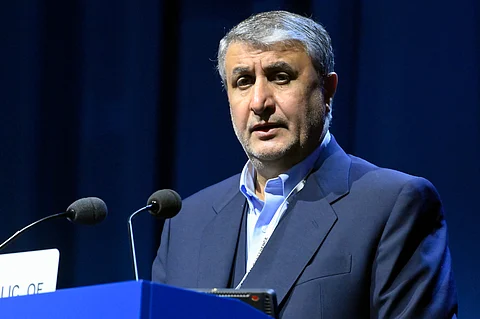

Iran has rejected the latest report by the International Atomic Energy Agency (IAEA), with senior officials warning of serious consequences if Western nations proceed with efforts to declare Tehran in violation of its obligations under the Nuclear Non-Proliferation Treaty (NPT).
Mohammad Eslami, head of the Atomic Energy Organization of Iran (AEOI), dismissed the findings in an interview with Iranian state television on Sunday. “Without enrichment, there will be no nuclear fuel cycle. Without the fuel cycle, the possibility of conducting research and applied activities in various fields, including medicine and industry, will be lost,” he said.
Eslami reiterated that nuclear enrichment remains a “red line” for Tehran, echoing Iran’s longstanding position, particularly in response to U.S. demands under the Trump administration that the country dismantle its enrichment infrastructure.
The IAEA report, which was requested by the agency’s 35-member Board of Governors in November, is now being used by the United States, United Kingdom, France, and Germany to argue that Iran is in breach of its NPT obligations. The report accuses Iran of having undeclared nuclear activities during the early 2000s and again from 2009 until 2018. It also claims that Tehran has significantly expanded its stockpile of highly enriched uranium, estimating that Iran now possesses enough fissile material to produce up to 10 nuclear weapons within one month.
The four Western countries are expected to present a resolution at next week’s board meeting calling for Iran to be formally declared non-compliant—a designation not applied since September 2005.
If the resolution passes, it could pave the way for the activation of the “snapback” mechanism by the European trio (E3), reimposing sanctions on Iran that were originally lifted under the 2015 Joint Comprehensive Plan of Action (JCPOA).
Iranian officials have issued stern warnings in response. Tehran has threatened to react “forcefully” if snapback sanctions are initiated, with multiple senior figures hinting at a significant escalation in Iran’s nuclear program.
Although Iran has not openly stated it would pursue nuclear weapons, analysts note that officials have signaled an intention to expand uranium enrichment and deploy advanced centrifuges if provoked. This would mark a substantial shift from the current level of activity, which Iran maintains is peaceful and permitted under the NPT.
On Saturday, Iranian Foreign Minister Abbas Araqchi held a phone call with IAEA Director General Rafael Grossi, urging the agency to acknowledge Iran’s compliance with its nuclear obligations. Tehran has repeatedly accused the agency of political bias, particularly under pressure from Western governments.